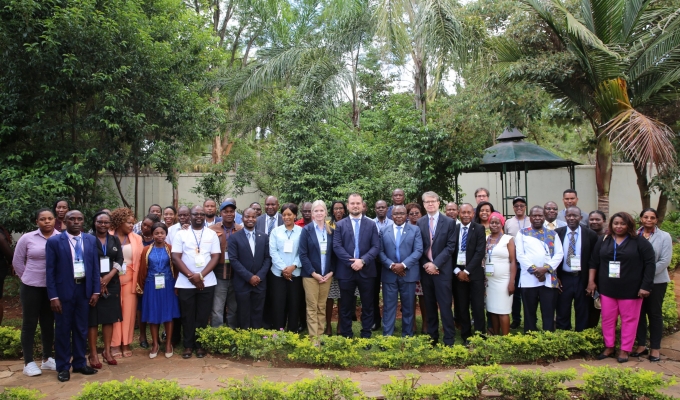In Harare, Zimbabwe, a regional workshop on taking action on biodiversity for food and agriculture in Africa is currently in progress.
The event, which runs from 30 January to 1 February 2024, is a collaborative effort between the Food and Agriculture Organization of the United Nations (FAO), the Government of Zimbabwe, the German Government, and Apimondia, the International Federation of Beekeepers’ Associations.
Participants include national focal points for biodiversity for food and agriculture from 15 African countries, along with representatives from FAO, Apimondia, and other partners. The goal of the workshop is to facilitate the implementation of the Framework for Action on Biodiversity for Food and Agriculture, adopted by the FAO Commission on Genetic Resources for Food and Agriculture in 2021. This Framework offers guidance and recommendations for conserving and sustainably using biodiversity across agricultural sectors and ecosystems.
Opportunities for participants to exchange experiences and best practices, identify gaps and needs, and develop action plans for enhancing biodiversity for food and agriculture in their respective countries and regions are being provided at the workshop.
Today, the Honourable Deputy Minister of Lands, Agriculture, Fisheries, Water and Rural Development of Zimbabwe, Mr Vangelis Haritatos, opened the workshop. He emphasized the importance of biodiversity for food security, nutrition, and livelihoods in Africa and shared Zimbabwe’s achievements and challenges in promoting sustainable agriculture and biodiversity conservation.
Mr Dan Leskien, the FAO Officer-in-Charge of the Commission on Genetic Resources for Food and Agriculture, welcomed the participants and expressed gratitude to the Government of Zimbabwe and Apimondia for their support and collaboration. He presented the main findings and recommendations of the report on the State of the World’s Biodiversity for Food and Agriculture, launched by FAO in 2019, and stressed the need to address the challenges posed by the loss of biodiversity for food and agriculture.
Mr Patrice Talla, the FAO Subregional Coordinator for Southern Africa and FAO Representative in Eswatini, Lesotho and Zimbabwe, highlighted the alignment of the workshop with the FAO Strategic Framework (2022-31). He also acknowledged Zimbabwe’s efforts in mainstreaming biodiversity in agricultural policies and practices, and the role of the Farmer Field School model in promoting ecosystem-based agricultural practices.
Presentations and discussions on various topics related to biodiversity for food and agriculture are being featured at the workshop. These include the Global Plans of Action for plant, animal, aquatic and forest genetic resources, the International Year of Millets, the International Treaty on Plant Genetic Resources for Food and Agriculture, the role of pollinators and other associated biodiversity, and the integration of biodiversity into national and regional policies and strategies.
Participants are developing action plans that outline the priority actions, expected outcomes, indicators, timelines, and responsibilities for implementing the Framework for Action on Biodiversity for Food and Agriculture in their countries and regions. The workshop is also providing inputs and feedback for the work of the Ad Hoc Expert Team for Biodiversity for Food and Agriculture, established by the Commission in 2023.
This workshop is part of a series of regional workshops on taking action on biodiversity for food and agriculture, supported by the German Government and co-hosted by FAO and Apimondia. Previous workshops were held in Asia and the Pacific, and in Europe and Central Asia. The next workshop is scheduled to be held in Latin America and the Caribbean.

